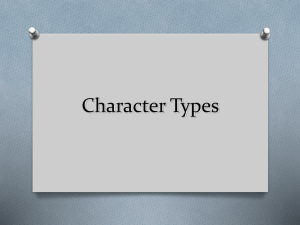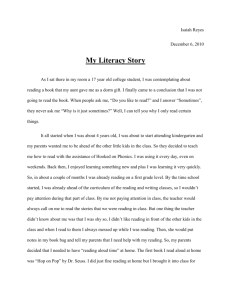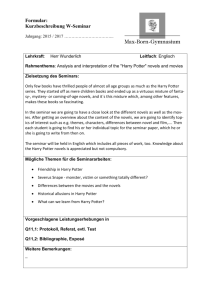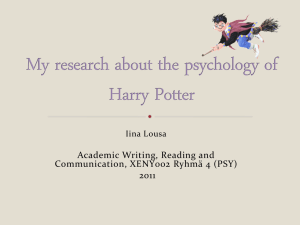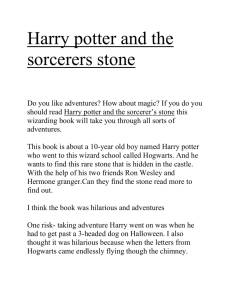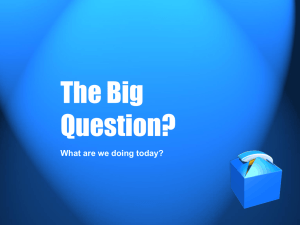Important Short Story Terminology
advertisement
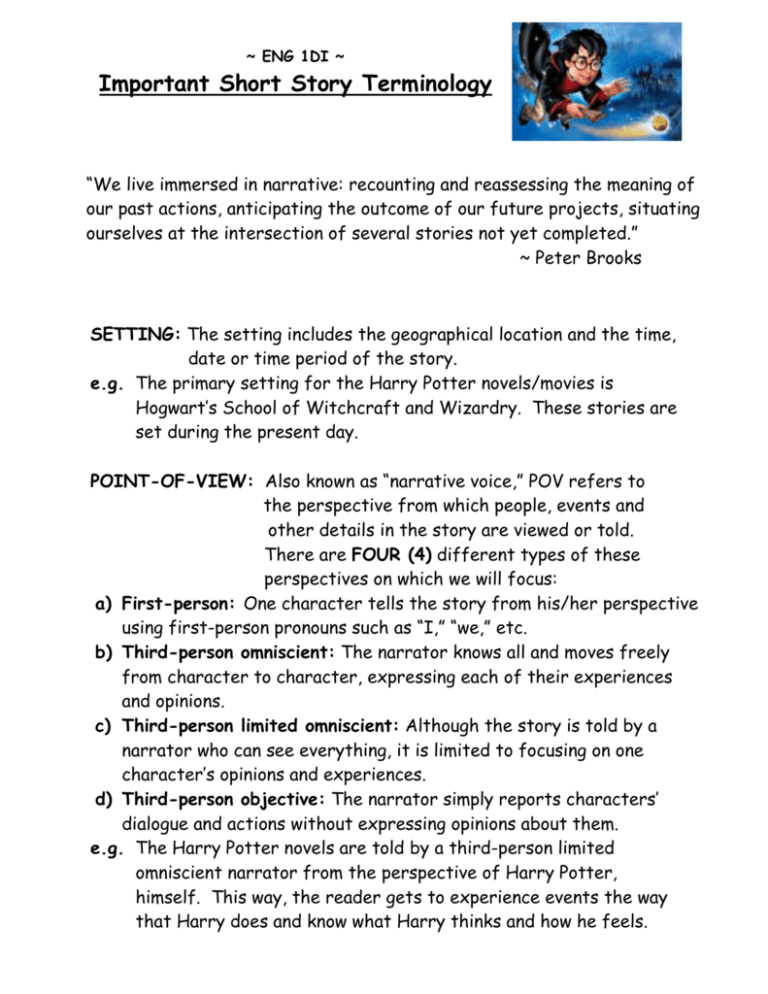
~ ENG 1DI ~ Important Short Story Terminology “We live immersed in narrative: recounting and reassessing the meaning of our past actions, anticipating the outcome of our future projects, situating ourselves at the intersection of several stories not yet completed.” ~ Peter Brooks SETTING: The setting includes the geographical location and the time, date or time period of the story. e.g. The primary setting for the Harry Potter novels/movies is Hogwart’s School of Witchcraft and Wizardry. These stories are set during the present day. POINT-OF-VIEW: Also known as “narrative voice,” POV refers to the perspective from which people, events and other details in the story are viewed or told. There are FOUR (4) different types of these perspectives on which we will focus: a) First-person: One character tells the story from his/her perspective using first-person pronouns such as “I,” “we,” etc. b) Third-person omniscient: The narrator knows all and moves freely from character to character, expressing each of their experiences and opinions. c) Third-person limited omniscient: Although the story is told by a narrator who can see everything, it is limited to focusing on one character’s opinions and experiences. d) Third-person objective: The narrator simply reports characters’ dialogue and actions without expressing opinions about them. e.g. The Harry Potter novels are told by a third-person limited omniscient narrator from the perspective of Harry Potter, himself. This way, the reader gets to experience events the way that Harry does and know what Harry thinks and how he feels. PROTAGONIST: The main character in a story. He/She is often the hero, the leader or the main champion of events. e.g. The protagonist in the Harry Potter series is Harry Potter, himself. This is because he is the character around whom the story’s events are focused. ANTAGONIST: The character who opposes or is against the protagonist/main character. The antagonist usually tries to prevent the protagonist from reaching his/her goals. e.g. The primary antagonist in the Harry Potter stories is Voldemort, although most of the stories also have other, more specific antagonists. THEME: The story’s central or dominant idea. While short stories usually only have one theme, longer novels or movies can have several. e.g. One theme or dominant idea from the Harry Potter series is that “One must face one’s own fears in order to overcome them.” MOOD: The overall emotional impression or tone in a literary work. Mood can be created through DICTION (word choice), DESCRIPTIVE DETAILS and/or EVOCATIVE IMAGERY. e.g. One of the most prevalent moods set in the Harry Potter series is a “SUSPENSEFUL” one.


